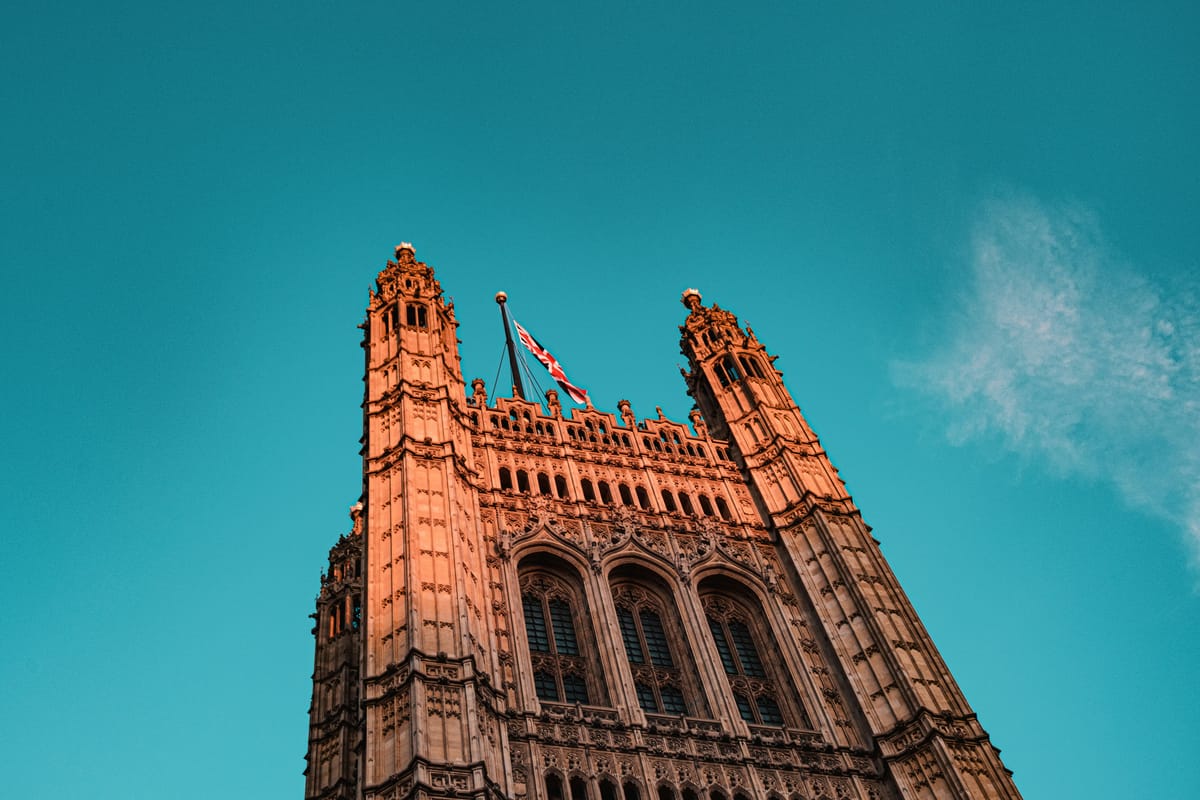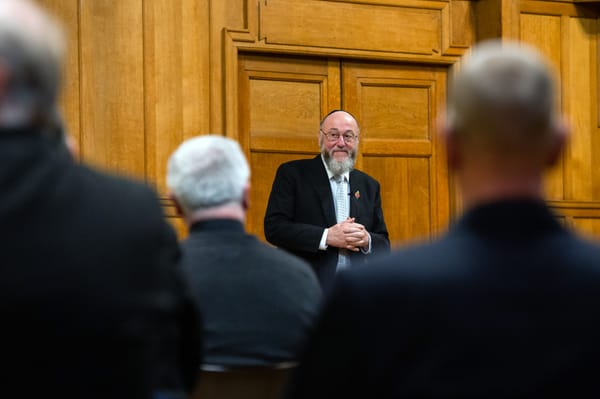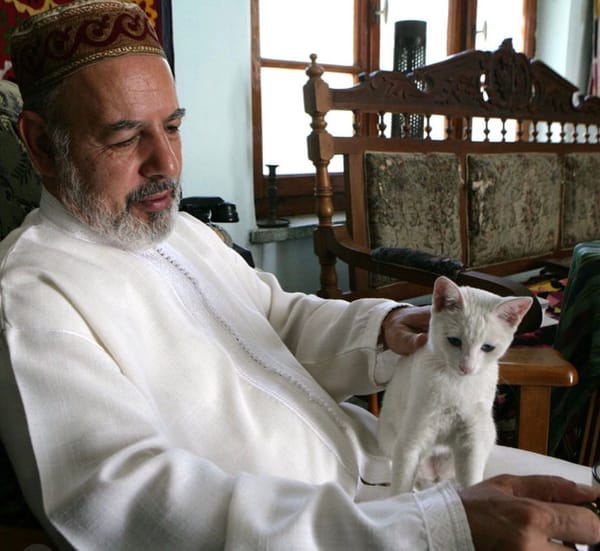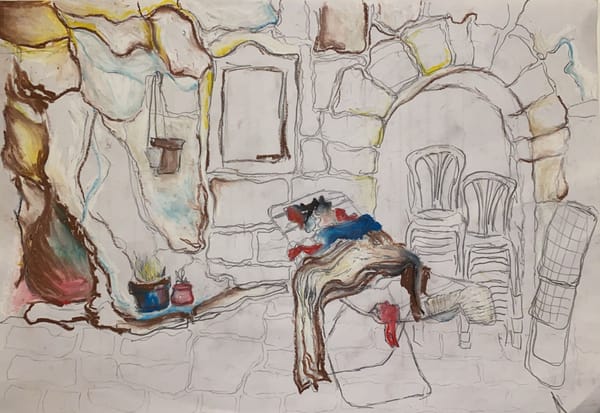A new season
On electoral ambivalence.

2009, the year of my bat mitzvah, was the last Britain saw out with a Labour government, which means that today’s election results mark a first in my entire legal adult life and most of my Jewish adult one. It isn’t just a victory for Labour. Despite a loss to Jeremy Corbyn, despite a Green victory in Bristol, despite a slice taken out of Keir Starmer’s vote share in his constituency (in large part thanks to independent candidate and anti-Zionist Jew Andrew Feinstein) and the party as a whole being on track at time of writing to enjoy a smaller number of votes than they won in 2017, the parliamentary majority still gives Keir Starmer and those around him the power to do what they like for the next parliamentary term.
So what will that be? The record gives socialists plenty of cause for fear. Starmer’s leadership has demonstrated a hostility to the left inside Labour’s ranks, a disdain for party democracy (a bad sign for national democracy), a tendency to lie, brazenly and often, a distaste for the kinds of policies that could make a material difference to the lives of the majority in Britain, an enthusiasm for big business (including private healthcare), resentment towards the organised labour movement, a doggish readiness to attack transgender people and migrants as the right demands, and a willingness to circumvent procedure entirely to avoid backing an end to an Israeli bombardment that has now claimed close to 40,000 Palestinian lives. As I’ve written in Tribune, on a national scale, Labour has gone to great lengths to make clear that despite the landslide nothing substantial will change.
The potential consequences of all that go further than a maintenance of a grim status-quo. Macron’s unfolding nightmare with Marine Le Pen proves that centrist rule, typified by the incapability or unwillingness to take seriously the manifold crises humanity now faces, only increases the political dissatisfaction on which the far-right feeds. The groundswell of support for Reform in this election, including to Labour’s detriment, is likely to dictate the Conservatives’ position in the coming years; opposition will give those Conservatives the time and space to indulge their most fascistic fantasies. If Starmer fails to note France’s warning (sense would suggest he couldn’t; history suggests he will), the Tories – or Reform itself – may well return renewed and worsened in 2029 when public frustration sees Labour’s exercise in political nothingness collapse.
And yet – because I still think it is worth saying yet – this is the first time in fourteen years that the party in power is one with socialists in it. Despite the Labour machine’s best efforts, a few of those re-elected under its banner are people who have spoken at Palestine Solidarity Campaign rallies, people who have stood on picket lines alongside striking workers, people who have spent recent years working to inch our politics in the direction of redistribution and justice. In this, the new government represents an opportunity of the kind the last one never did. Of course ‘opportunity’ is not enough: support for strikes and an opposition to genocide is the bare minimum we should demand of Labour candidates. But even the presence of a small minority of people who fit those criteria in the party of government represents a rupture with the last fifteen years.
I could not stop thinking, in the run-up to this election, of all those whose lives have been lost needlessly in Britain because of the policies of the Conservative party since 2010, both in horrific, highly-visible catastrophes like Grenfell and Covid and in the smaller, everyday catastrophes of hunger and mental health crisis and cold. One study from 2022 linked austerity to 330,000 excess deaths. The only thing to be unhappy about in the removal of the Conservatives from Britain’s highest offices is that it took liberal outrage at the party’s apparent failures of political politesse to do it – that simple human anger at their casual disdain for human life was not enough.
In the knowledge that the bulk of the Tories’ replacements are doing what they can to limit their own ability to be better, however, I know I’m not the only person who’s been tempted by a complete collapse into cynicism. The British political system seems destined to crush any efforts to improve the lives of those it governs, and the world at large seems locked into a spiral that can only produce more violence and deprivation. What stops me is the knowledge that cynicism delights those who benefit from us believing all this is inevitable — that instead of being neutral, apathy is, to them, a gift.
To me, a better response today is ambivalence. Ambivalence is a word often – but wrongly – used in the place of indifference; it more accurately refers to a state of strong but conflicting emotion. Judaism is a religion almost uniquely familiar with ambivalence. It’s key to some of the stories fundamental to Jewish life – the Exodus out of Egypt, for example, which celebrates the leaving-behind of one horror but is fraught with fear about the uncertainty that lies ahead – and in Jewish writing the word is used to refer to feelings about everything from identity and Israel to religious practice itself.
Thinking about a Jewish response to the election for the Pickle this week led me to the Shehecheyanu – the Jewish prayer said when something is done for the first time, or done for the first time in its relevant cycle, like the start of an annual festival. The English translation I learned growing up goes as follows: "Blessed are you, Lord our God, king of the universe, who has kept us alive, and sustained us, and brought us to this season." (One secular alternative I’ve found expresses gratitude to the prior generations that have sustained us; another blesses "the goodness which we have encountered in the world".)
I’m not the first to tie the Shehecheyanu to the occasion of an election, but in many ways it feels like an appropriately ambivalent prayer for this election in particular. As I understand it, the prayer expresses thanks – to God or goodness or whatever you like – for seeing the speaker to a point of change. The "season" in question is not qualified as good or bad, and that means it can be both – it is only defined as a season, with all the transience and variety the term implies.
To be clear, I’m no rabbi. Maybe after this is published Vashti will be met with comments about my failure to understand the Shehecheyanu properly. Other readers might feel that writing about hope and faith at this moment is all very nice but inadequate to the threat Starmerism poses, an injustice to the people who are likely to suffer worst under his rule. Unfortunately part of the burden – and joy – of being on the left is continuing to believe in the possibility of serious material change, of liberation, even in the most unlikely circumstances. Resistance and hope are not mutually exclusive. They are dependent on one another.
Today, when hope alone feels too simplistic, I’m taking comfort from the prayer above and the ambivalence it allows: relief that the last season is passing, and resolve for the struggle – in the Labour party and in every workplace, housing block, community centre, place of worship, and household in the country – that must come next. ▼
Francesca Newton is an editor at Vashti.
There’s no corporation or big advertisers behind Vashti – we're a workers' cooperative and rely on small donations to keep running. Support our journalism to help break the consensus.





